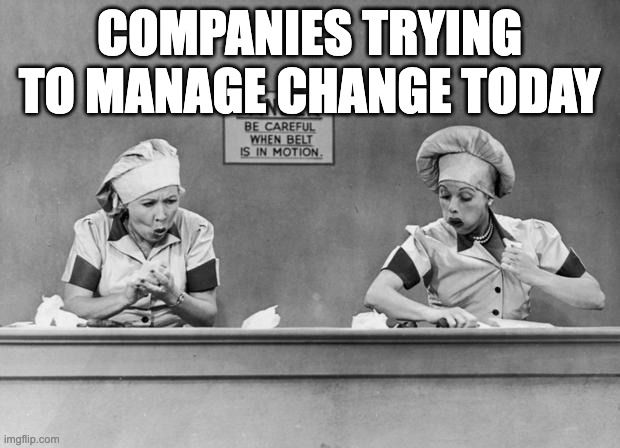The Future of Work is a Choice
- Rob Caldera
- Nov 18, 2018
- 2 min read

“Our opportunity is to have deep conversations and make more purposeful connections with people, rather than merely jumping from transaction to transaction. What if trust, relationships, and community are the most important currencies of the 21st century and beyond?” - Ayelet Baron, Our Journey to Corporate Sanity
What if? It’s an important question that gets to the heart of the future of work (even the future of society). In my first blog post, I identified similar “what if” scenarios. Questions like these help us contemplate new, better paths that are outside the norm. More and more though, these “what if” scenarios are becoming not just thought exercises, but actual choices in front of us about which direction we want to head. What do we want the future of work to be?
We are at an inflection point in history. A combination of exponential technologies, globalization, climate change, and more, are slowly but surely tearing at the fabric of the old order, and will eventually reshape so many foundational areas of society – education, economics, politics, work. My focus and the focus of this blog is the latter, which is still predominantly governed by models from the Industrial Age that treat employees like cogs in a machine.
But cracks have been showing for a long time, and are getting bigger every day. Work is not working. The pace of change is too fast for old school organizations to handle. Employees are disengaged and fed up with toxic working cultures. And now, we’re at the precipice of the A.I. revolution that is going to give a whole new meaning to the word ‘disruption.’
The choice is in front of us. Do we want to take control of our future and usher in an Age of Enlightenment for work or do we leave it up to the disruptive forces to create an even colder, dystopian future of work. While the latter is not necessarily a given, it’s the likely result if left unchecked without a guiding humanistic vision. Remember, we (society) have control over what the future of work will be. After all, work is a human construct. A.I. for example, will only replace most jobs if we make the conscious decision as a society to let that happen.
Don’t be fearful of what all these changes might mean for you or your company. Instead, embrace progress and set out on a path to own the future by creating it. Be a pioneer (or help your organization become one) by blazing a path into the unknown and shining a light on a possible positive future for others to see. This is an opportunity that only comes around once in a century.
What do I believe the future of work should be? What possibilities do I see? Plenty...which I'll share in a follow up post.






Comments